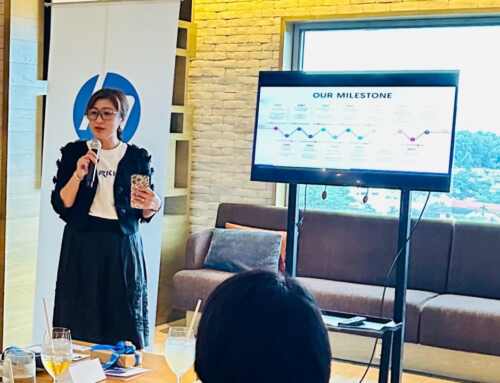In the rapidly evolving landscape of data analytics and cloud computing, Microsoft Fabric emerges as a game-changing solution designed to streamline and enhance data management processes. As organizations increasingly rely on data-driven insights to inform their strategies, the need for an integrated platform that simplifies data handling becomes paramount. Microsoft Fabric addresses this need and offers a flexible pricing model that caters to businesses of all sizes.
What Is Microsoft Fabric?
Microsoft Fabric is an all-encompassing data platform that integrates various services into a cohesive environment. Launched as part of Microsoft’s commitment to empowering organizations with robust data solutions, Fabric combines elements of data engineering, data integration, data warehousing, and real-time analytics. This unified approach allows businesses to manage their data lifecycle more efficiently, from ingestion to transformation and visualization.
At its core, Microsoft Fabric leverages the power of Azure, Microsoft’s cloud computing platform, to provide scalable and secure data storage solutions. By utilizing Azure’s capabilities, Fabric ensures that organizations can handle vast amounts of data without compromising performance or security. This is particularly crucial in today’s digital age, where data breaches and privacy concerns are at the forefront of organizational challenges.
Moreover, Microsoft Fabric is designed with user-friendliness in mind. Its intuitive interface enables users —regardless of their technical expertise —to navigate the platform effectively. This democratization of data access empowers employees across various departments to harness data insights, fostering a culture of informed decision-making within organizations.
Key Features of Microsoft Fabric
One of the standout features of Microsoft Fabric is its seamless integration with existing Microsoft tools and services. For organizations already using products like Power BI, Azure Synapse Analytics, or Azure Data Lake Storage, Fabric provides a familiar environment that enhances productivity. This interoperability means that businesses can leverage their existing investments while gaining access to advanced analytics capabilities.
Another notable feature is the platform’s support for real-time analytics. In an era where timely insights can make or break a business decision, the ability to analyze data in real time is invaluable. Microsoft Fabric enables organizations to process streaming data efficiently, allowing them to respond to market changes and customer needs swiftly.
Additionally, Microsoft Fabric incorporates advanced machine-learning capabilities. Organizations can build predictive models directly within the platform, enabling them to forecast trends and behaviors based on historical data. This feature not only enhances decision-making but also positions businesses to stay ahead of their competition by anticipating market shifts.
Furthermore, Microsoft Fabric emphasizes collaboration. The platform allows teams to work together on data projects seamlessly, breaking down silos that often hinder productivity. With shared workspaces and version control features, teams can collaborate in real-time, ensuring that everyone is aligned and working towards common goals.
Benefits of Using Microsoft Fabric
The benefits of adopting Microsoft Fabric extend far beyond its impressive feature set. For starters, organizations can expect significant cost savings. By consolidating various data services into a single platform, businesses can reduce operational costs associated with managing multiple tools and services. This streamlined approach not only saves money but also minimizes the complexity of managing disparate systems.
Moreover, Microsoft Fabric enhances data governance and compliance. With built-in security features and compliance tools, organizations can ensure that their data practices align with industry regulations. This is particularly important for businesses operating in highly regulated sectors such as finance and healthcare, where non-compliance can lead to severe penalties.
Another compelling advantage is the scalability that Microsoft Fabric offers. As businesses grow and their data needs evolve, Fabric can easily scale to accommodate increased demands. Organizations can start small and expand their use of the platform as needed, ensuring they only pay for what they use. This flexibility makes it an attractive option for startups and large enterprises alike.
Lastly, the community support surrounding Microsoft Fabric cannot be overlooked. As part of the Microsoft ecosystem, users benefit from extensive documentation, tutorials, and forums where they can seek assistance and share best practices. This robust support network empowers organizations to maximize their investment in the platform.
Microsoft Fabric Pricing
Understanding the pricing structure of Microsoft Fabric is essential for organizations considering its adoption. Microsoft employs a consumption-based pricing model for Fabric, which means that businesses pay based on their actual usage rather than a flat fee. This approach allows organizations to align the spending with their specific needs and usage patterns.
The pricing typically includes storage charges, compute resources and any additional services utilized within the platform. For instance, organizations may incur costs for data processing tasks or when leveraging advanced analytics features. However, Microsoft also offers various pricing tiers that cater to different business sizes and requirements.
For smaller businesses or those just starting with data analytics, there are entry-level plans that provide essential features at a lower cost. As organizations grow or require more advanced capabilities, they can easily transition to higher-tier plans that offer additional resources and functionalities.
It’s worth noting that Microsoft frequently updates its pricing structure and offers promotional discounts or bundles for new customers. Therefore, businesses should regularly check Microsoft’s official website or consult with a representative to ensure they are getting the best deal tailored to their specific needs.
Microsoft Fabric stands out as a transformative solution in the realm of data management and analytics. Its comprehensive features, coupled with a flexible pricing model, make it an attractive option for organizations looking to harness the power of their data effectively. By providing a unified platform that integrates seamlessly with existing tools and emphasizes collaboration, Microsoft Fabric empowers businesses to make informed decisions based on real-time insights. As companies continue to navigate the complexities of the digital landscape, investing in a robust solution like Microsoft Fabric could very well be the key to unlocking their full potential in today’s competitive market.



